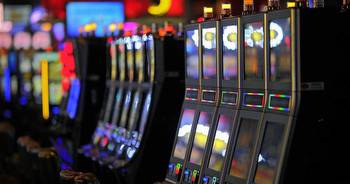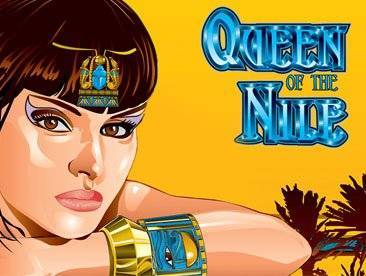Legal Maryland Gambling: How To Play Safe In 2024
Maryland, like many other states in the United States, has a complex relationship with gambling.
With various options, ranging from casino games such as online slots to poker to horse racing tracks and even a state lottery, the state offers multiple avenues for individuals to engage in gambling activities.
However, the legal gaming environment in Maryland is multifaceted, with regulations and laws governing different aspects of the industry.
This article will understand the nuances of Maryland’s legal gambling scene, exploring its history, current regulations, and prospects.
The History Of Gambling In Maryland
The history of gambling in Maryland dates back to colonial times when lotteries were used to fund public projects such as roads, bridges, and schools.
However, the practice was often associated with corruption and fraud, leading to a ban on lotteries in the late 19th century. It wasn’t until the mid-20th century that gambling saw a resurgence in Maryland, primarily horse racing.
The Maryland Jockey Club was founded in 1870, laying the groundwork for the state’s horse racing industry. Over the years, several racetracks emerged, including Pimlico Race Course, home of the prestigious Preakness Stakes, the second jewel in horse racing’s Triple Crown.
In the latter half of the 20th century, efforts to legalize other forms of gambling gained traction. In 1972, Maryland voters approved a constitutional amendment authorizing a state lottery officially launched in 1973. The lottery quickly became a popular form of entertainment and revenue generation for the state.
The Gambling Laws for Online Casinos In Maryland
These days, playing their favorite games online is permitted in many US jurisdictions as a legal amusement. Presumably, Aviator Game is one of the most well-liked crash casino games among Americans (a helpful article may be found here).
However, online casino games such as the best online slots, poker, and blackjack are still forbidden in Maryland, and playing these games there is unlawful. Thankfully, the most recent gaming law allowing internet casino games is still waiting to be approved. The state’s gaming laws are currently as follows:
Casino gaming
For the time being, residents and guests of Maryland can choose to play at six physical casinos. Surprisingly, these casinos offer traditional game types, including poker, roulette, blackjack, and slots. Online casino gaming is still forbidden and regarded as unlawful.
Sports betting
Legalizing online casinos remained challenging, but in 2020, Maryland voters authorized sports betting. Online betting became life in 2022, enabling state residents to place bets on their preferred horses without leaving home.
Expansion Of Casino Gambling
The most significant shift in Maryland’s gambling landscape occurred in the early 21st century with the introduction of casino gambling. In 2008, voters approved a referendum to allow slot machines at five locations across the state. Subsequently, the Maryland General Assembly passed legislation to regulate and oversee the operation of casinos.
The first casino, Hollywood Casino Perryville, opened in 2010, marking the beginning of a new era in Maryland’s gambling industry. Since then, several other casinos have opened, including MGM National Harbor Live! Casino & Hotel, Horseshoe Casino Baltimore, and Ocean Downs Casino.
Each casino offers a variety of gaming options, including slot machines, table games, and poker. These establishments have provided additional entertainment choices for Maryland residents and generated significant revenue for the state through taxes and licensing fees.
The Regulatory Framework Of Online Gambling
The Maryland Lottery and Gaming Control Commission regulates gambling in Maryland. This independent regulatory agency licenses and regulates casinos, the state lottery, and charitable gaming activities.
Casinos in Maryland are subject to strict regulations regarding operations, security, and responsible gambling practices. They must implement measures to prevent problem gambling, such as offering self-exclusion programs and resources for individuals seeking help.
The Maryland Lottery and Gaming Control Commission also conducts regular audits and inspections to ensure compliance with state laws and regulations. Any violations are met with penalties, including fines and license revocation.
The Impact On Communities Of Online Gambling
The introduction of casino gambling in Maryland has significantly impacted local communities. In addition to creating jobs and stimulating economic growth, casinos have become critical contributors to the state’s revenue stream.
Gambling taxes and fees support various public initiatives, including education, healthcare, and infrastructure development. This funding helps alleviate the tax burden on Maryland residents and provides vital services to communities across the state.
Furthermore, casinos often engage in philanthropic efforts, supporting local charities and nonprofit organizations through donations and sponsorships. They contribute to the well-being of the communities in which they operate.
The Future And Challenges Outlook
While the expansion of gambling in Maryland has brought many benefits, it has also presented challenges. Concerns about problem gambling, addiction, and social impact have prompted calls for increased regulation and oversight.
In response, policymakers have implemented measures to promote responsible gambling and provide support for individuals struggling with addiction. These initiatives include funding for treatment programs, public awareness campaigns, and partnerships with advocacy groups.
Looking ahead, the future of gambling in Maryland remains uncertain. The industry continues to evolve, with advancements in technology and changes in consumer preferences shaping its trajectory. As such, policymakers must remain vigilant and adopt regulations to address emerging issues and ensure the integrity of the gambling industry.
Maryland’s legal gambling landscape is a complex tapestry of history, regulation, and socioeconomic impact. The state has undergone significant transformations from its humble beginnings with colonial lotteries to the modern era of casinos and online gaming.
While gambling offers entertainment, revenue, and employment opportunities, it also presents challenges that require careful management and oversight.
By balancing stakeholders’ interests and prioritizing responsible gambling practices, Maryland can continue benefiting from its gambling industry while mitigating potential harms.
In the years to come, it will be essential for policymakers, regulators, and industry stakeholders to collaborate effectively to address the evolving needs and concerns of Maryland’s gambling community.
The state can ensure a sustainable and responsible gambling environment for all through thoughtful planning and proactive measures.




















